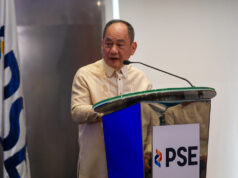RCBC earnings climb on strong core business

RIZAL COMMERCIAL Banking Corp. (RCBC) logged double-digit net profit growth last year, buoyed by the better performance of its core business, high margins, strong trading gains, as well as higher fee-based income.
RCBC Corporate Planning Head Ma. Christina P. Alvarez said the bank’s net income climbed by 25% to P5.4 billion in 2019.
“The main drivers for the growth were our core business, represented by our net interest income and our fee-income,” she told reporters at a briefing in Makati on Thursday.
The bank’s gross revenues climbed 35% year on year to P35.9 billion in 2019 on the back of growth in its interest income from loans and receivables.
“We also had a very strong performance in our total loans — P425 billion — growing by 11% supported by deposit growth of 8% to total P457 billion,” she said.
In a statement, RCBC President and CEO Eugene S. Acevedo credited the loan expansion to growth in both the consumer and small-sized and medium-sized enterprises or SME segments.
Meanwhile, the bank’s credit card business also expanded, with credit card receivables climbing by 44% and with its card base growing by 26% year on year to about 877,000.
Ms. Alvarez said the bank’s assets jumped by 18% to P771.3 billion, supported by growth in its core business through net interest income and fee-based income.
The bank’s capital funds was at P83.2 billion, well above the regulatory requirement, with a capital adequacy ratio of 13.8% and while common equity Tier 1 ratio of 12.9%.
Meanwhile, return on equity in 2019 grew by 69 basis points to 6.5%.
RCBC Treasurer Horacio E. Cebrero, III said deposits also inched up by 8% in 2019.
“What we’re trying to focus on the low cost deposits which are the operating accounts…,” Mr. Cebrero said during the same briefing.
In July last year, RCBC merged with its thrift unit, RCBC Savings Bank, after securing regulatory approvals.
In September, the bank raised $300 million from dollar-denominated bonds under its sustainable finance framework at a yield of three percent per annum.
Meanwhile, in November, the bank raised P7.5 billion from three-year bonds with a fixed rate of 4.426 per annum due by November 2022.
The bank remains bullish they will see continued growth momentum in 2020 despite some headwinds in financial markets.
“We do see a lot of opportunities despite the coronavirus… There will be a lot of added volatility but I guess the government and the policy makers have sounded off to market that they have enough tools to address potential decline in the growth of the Philippines,” Mr. Cebrero said.
Mr. Cebrero added that they are tapping the bond market again this year.
“Yes, we are going for a bond issuance. We are going out in the market, definitely…somewhere to the number of about P22 billion. As much as market conditions would be conducive to getting funds from this kind of sector, then we are going to do so,” Mr. Cebrero said.
This year, RCBC is looking to set up its all-digital bank through a rural bank unit.
“There will be some investments on the digital bank but this is mostly partnerships…In terms of performance, the digital bank is aimed to expand our market and increase our number of customers,” Ms. Alvarez said.
She noted that a minimum requirement set by the Bangko Sentral ng Pilipinas to set up a rural bank is a minimum of P100 million for a Metro Manila-based office while an office outside the capital would need a minimum of P20-million capital.
Shares in the Yuchengco-led lender ended at P20.50 apiece on Thursday, unchanged from its Wednesday close. — Luz Wendy T. Noble



